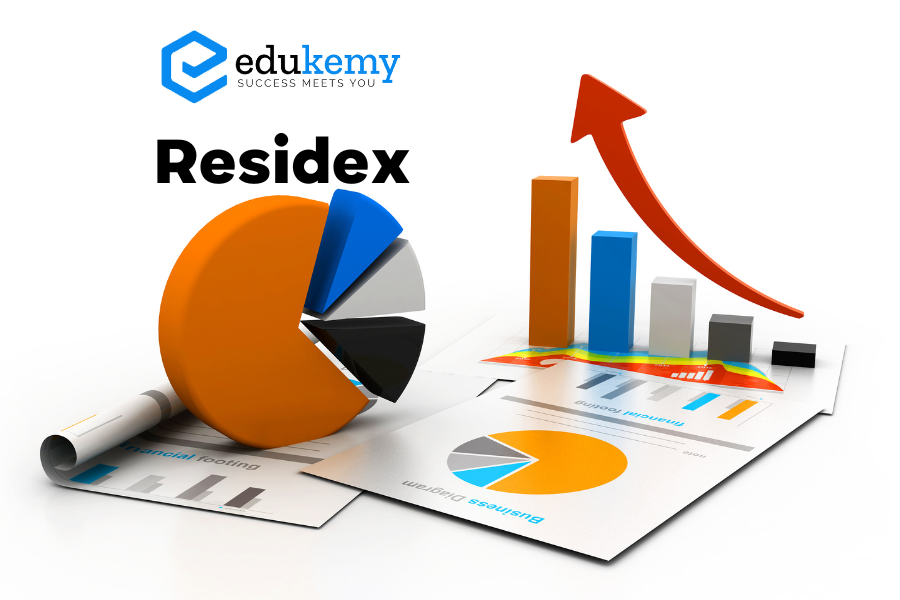
RESIDEX (Housing Price Index): RESIDEX, launched by the National Housing Bank (NHB), is the country’s official Housing Price Index (HPI). It was initially introduced in 2007, revamped in 2015, and expanded to cover 50 cities across 18 States and Union Territories. RESIDEX enables various stakeholders, including policymakers, banks, housing finance companies, builders, developers, investors, and individuals, to track the movement of housing prices on a quarterly basis. The index provides valuable information for analyzing price trends and making informed decisions in the real estate market.
House Price Index (HPI) of the RBI: The Reserve Bank of India (RBI) compiles the Quarterly House Price Index (HPI) for ten major cities in India. The base year for this index is 2010-11. It is based on official data from property price transactions collected from the registration authorities of respective state governments. The city-specific indices contribute to the calculation of an average house price index, representing the overall movement of house prices at the all-India level.
These indices, including CFPI, FAO Food Price Index, RESIDEX, and RBI’s House Price Index, play crucial roles in assessing inflation, price trends, and market dynamics in the food and housing sectors, providing valuable information for various stakeholders and policymakers.
The Collection of Statistics Act, 2008, is an important legislative framework in India that empowers the government to enhance the collection, accuracy, and dissemination of statistical data. Here are some key features of the Act:
- Penalties for Non-Compliance:
- The Act grants the government the authority to impose higher penalties for non-compliance with data-sharing requirements. This is aimed at encouraging timely and accurate data collection.
- Tougher Punishment for Data Manipulation:
- The Act introduces tougher punishment for cases involving the manipulation of data. Willful manipulation or omission of data is treated as a criminal offense, reflecting the seriousness of ensuring data integrity.
- Prevention of Obstruction in Data Collection:
- The penalty scheme outlined in the Act is applicable not only to non-compliance but also to cases where companies prevent or obstruct employees from collecting data. This provision ensures that the data collection process is not hindered.
- Classification of Core Statistics:
- The Act provides the government with the authority to classify certain statistics as ‘core statistics.’ These may include crucial indicators related to national income, money and banking, demography, social sectors, and the environment. The government can determine the methods for collecting and disseminating such core statistics.
- Empowering the Government:
- The Act empowers the government to take necessary measures to improve the overall quality and reliability of statistical data. This is essential for informed decision-making in various sectors of the economy.
By enacting the Collection of Statistics Act, 2008, the government aims to strengthen the statistical infrastructure, promote data accuracy, and deter any attempts to manipulate or obstruct the collection of essential statistical information. The focus on core statistics reflects the significance of certain key indicators that play a crucial role in policy formulation and planning.
FAQs
1. What is RESIDEX?
- RESIDEX, short for Residential Property Price Index, is a comprehensive index that tracks the movement of residential property prices in various cities across India. It is developed and maintained by the National Housing Bank (NHB).
2. How does RESIDEX calculate housing price indices?
- RESIDEX calculates housing price indices based on the actual transactions of residential properties in selected cities. It collects data on property sales from various sources such as developers, real estate agents, and government records. This data is then analyzed to derive indices reflecting the price movement in the housing market.
3. What is the significance of RESIDEX for homebuyers and investors?
- RESIDEX provides valuable insights into the trends and fluctuations in residential property prices, helping homebuyers and investors make informed decisions. It enables them to gauge the relative affordability of housing in different cities and assess potential investment opportunities.
4. How frequently is RESIDEX updated?
- RESIDEX is typically updated on a quarterly basis, providing up-to-date information on housing price movements in various cities. The regular updates ensure that stakeholders have access to current market trends and data for decision-making purposes.
5. Can RESIDEX be used as a benchmark for property valuation?
- While RESIDEX offers valuable information on housing price trends, it may not always be suitable as the sole benchmark for property valuation. Factors such as location, property size, amenities, and local market conditions also influence property prices. However, RESIDEX can serve as a reference point or supplementary tool for assessing property values in conjunction with other valuation methods.
In case you still have your doubts, contact us on 9811333901.
For UPSC Prelims Resources, Click here
For Daily Updates and Study Material:
Join our Telegram Channel – Edukemy for IAS
- 1. Learn through Videos – here
- 2. Be Exam Ready by Practicing Daily MCQs – here
- 3. Daily Newsletter – Get all your Current Affairs Covered – here
- 4. Mains Answer Writing Practice – here

